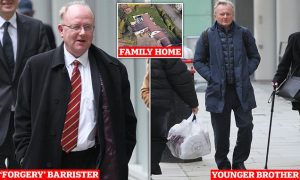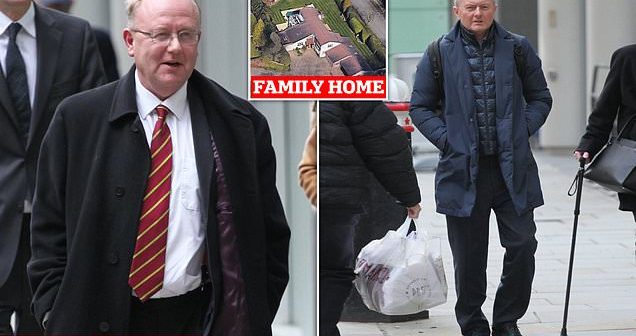
A barrister accused of forging his mother’s signature to cut his younger brother out of his inheritance has lost a court fight over the £1.2 million fortune in the UK.
Robert Grierson, 56, who specialises in tax and will disputes, was sued by his 55-year-old brother Duncan, who was left with just £10,000. Robert was given the rest of the estate.The High Court heard that Elise Grierson, their mother, dramatically changed her will 16 days after their father’s death in 2022, having previously treated the brothers equally.Robert claimed she had already signed a declaration of trust in 2013, handing him a half share of her £1 million home in Sutton Coldfield, West Midlands.
But he was sued by his brother at the High Court, with Judge Joanne Wicks KC ruling that both the gift of half the house and the will were invalid.
The judge said there was “compelling evidence” that Elise had not signed the trust document herself, while the will was not properly witnessed and was made at a time when Robert could not prove she was of sound mind.The judge made no findings as to whether Robert was responsible for forgery because he had not been in court to defend himself.During the trial, Judge Wicks heard that Elise and her husband, also named Robert, had enjoyed a 60-year marriage, with their son Robert living with them from 1999 and later operating his legal practice from their home on an exclusive private estate.
Constance McDonnell KC, Duncan’s barrister, said the parents treated their sons equally and had “worked extremely hard” to support them, with both going on to study law at the University of Cambridge.
After her husband’s death in January 2022, Grierson suffered an “acute grief reaction”, the barrister said. She also suffered depression and a decline in her physical health, and died in hospital in March aged 84.Duncan went to court to challenge the 2013 document on the basis of forgery and the will on the basis that his mother was mentally unsound, did not understand and properly approve of it, and that it was not witnessed properly.
He said a previous will from 2020, dividing her estate equally, was her last true will and that there was no reason for her to have changed her mind in the two intervening years.
Ms. McDonnell said an expert had assessed the declaration of trust and said the signature and initials of Elise on it were probably “simulations”.
There was also evidence that an “indented tracing guideline” had been followed to produce it, making it “highly probable” that it was not signed by her.
Robert’s defence to the action was struck out following his failure to disclose evidence earlier this year, with the judge then left to decide the case on Duncan’s evidence alone.
Giving judgment, Judge Wicks said the expert evidence provided “compelling evidence that Elise did not herself sign” the document handing Robert half of the house.
“Duncan’s case is that Robert is the only person who could, and would, have placed such simulated signatures on that document, and that he did so in order to acquire by fraud an asset worth about £500,000,” said Ms McDonnell.



